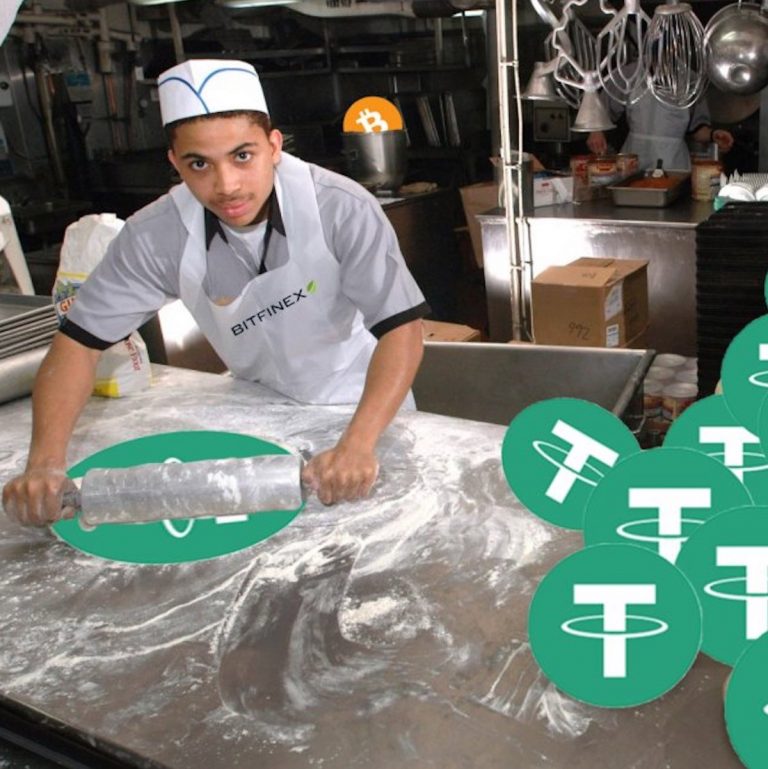Latest news about Bitcoin and all cryptocurrencies. Your daily crypto news habit.

Bitcoin has had a rocky week to say the least. At its lowest point, the cryptocurrency dipped to $9,200 before a rising green candle sent it scurrying back into the safety of five figures. That candle was sparked by the release of $100m worth of tethers – surrogate US dollars – and was followed by another $100m issued for the next three days in a row. Tethers are propping up the bitcoin market right now, but what happens when the music stops? Should regulators wade in or Tether shut up shop, the loss of fresh capital could be cataclysmic.
Also read: While Tether Critics Grow More Vocal, Belief in the 1:1 Tightrope Remains
Tether – Savior or Sinner?
The bitcoin community have decidedly mixed feelings on Tether. On the one hand, this ersatz fiat currency is instrumental in shoring up prices. But if that supply line were to be cut off, the crypto markets would be starved of new money. While Bitfinex, which controls Tether, is in charge of issuing these dollar-pegged tokens, other exchanges are also reliant on them including Kraken and Bittrex. What happens to Tether affects everyone.
 The amount of new bitcoins created each day is worth approximately $18 million. Miners need to sell most of these coins to cover their utility costs. This means that $18 million of new money needs to enter the markets daily just to maintain current prices. Given that $400 million of tethers has been issued over the past four days, and yet the price of BTC has remained sluggish, this is alarming. If it wasn’t for tether’s torrent of newly created cash, this week’s dip would have cut deeper still.
The amount of new bitcoins created each day is worth approximately $18 million. Miners need to sell most of these coins to cover their utility costs. This means that $18 million of new money needs to enter the markets daily just to maintain current prices. Given that $400 million of tethers has been issued over the past four days, and yet the price of BTC has remained sluggish, this is alarming. If it wasn’t for tether’s torrent of newly created cash, this week’s dip would have cut deeper still.
Don’t Stop Believing
In the short-term, the issuance of tethers serves as a form of quantitative easing that keeps the markets ticking over, even amidst negative news and regulatory uncertainty. As one commenter pointed out, “Tethers aren’t really ‘backed’ by USD fiat, but rather by confidence in Bitfinex itself. Similarly the USD isn’t ‘backed’ by hard assets, but rather confidence in the US economy. What happens to USD if the Fed shuts off the insane volume of their printing press?”
So long as we collectively believe that tethers are real, they are real, or at least as real as any other global currency that’s magiced out of thin air, which has generally been the case ever since the gold standard was dropped. But what are markets if not manifestations of human psychology; global sentiment etched into every line, chart, and candle? No one, at this stage, realistically believes that Tether is receiving $100 million a day in customer deposits via its diminutive Polish bank and then converting these into USDT. That just ain’t happening.
Beware the Changeling
 Der Wechselbalg (The Changeling) by Henry Fuseli, 1781
Der Wechselbalg (The Changeling) by Henry Fuseli, 1781
In folklore, a changeling was a child that fairies were reputed to leave in cradles after snatching the human baby. It looked like the cradle’s original inhabitant on first glance, only to prove to be anything but. If the fairies performed the old switcheroo, unexplained diseases, disorders, and failed crops were sure to follow. Tether is valued like a real dollar and works like a real dollar – at least until the time comes to cash out. In the past month alone, over $1 billion of tethers have been issued. If Tether doesn’t hold a corresponding amount in its bank, the whole house of cards could come tumbling down, destroyed by a changeling swaddled in the mantle of the US dollar.
Do you think the volume of tethers entering the market is cause for concern? Let us know in the comments section below.
Images courtesy of Shutterstock, Wikipedia and @Masterdreamsmax.
Need to know the price of bitcoin? Check this chart.
The post Tether Printing Press In High Gear, Issuing $400 Million in Four Days appeared first on Bitcoin News.
Disclaimer
The views and opinions expressed in this article are solely those of the authors and do not reflect the views of Bitcoin Insider. Every investment and trading move involves risk - this is especially true for cryptocurrencies given their volatility. We strongly advise our readers to conduct their own research when making a decision.
